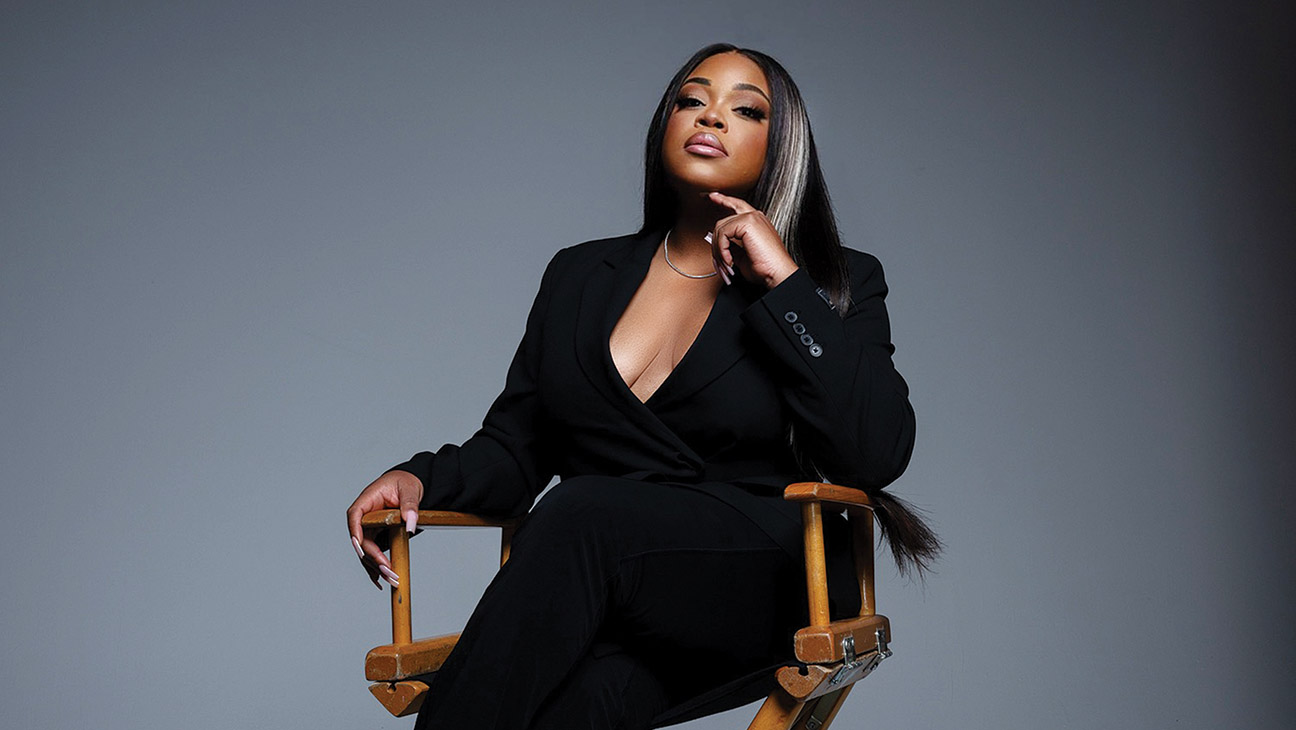
Angelica Nwandu had always had a weakness for celebrity gossip. So when she found herself unemployed in 2014 after quitting her job as an accountant to follow her dreams of becoming a screenwriter, she spent her free time in her cramped apartment in downtown Los Angeles consuming it and dishing about it with her friends, one of whom urged her to launch her own gossip site. The suggestion became an Instagram account she called The Shade Room (TSR). Nwandu’s first post explained the name. “I said, ‘The Shade Room is the truth room,’ ” she recalls. “Shade goes deep into the culture. When you think about the Black diaspora, a lot of times we are so brutally honest with each other,” Nwandu says. “I see it as so much deeper than what it is portrayed as in the media. It’s portrayed as just being petty, but I think it has to do with survival.”
From its inception, The Shade Room combined celebrity news with coverage of politics and national issues like police brutality. What set it apart was access to boldface names. Rather than merely looking on from the outside, TSR boasted exclusive photos (such as an internet-breaking 2018 snapshot of Kourtney Kardashian, Scott Disick and Sofia Richie) and interviews (such as rapper Quavo’s heartbroken reaction to the death of his music partner Takeoff) and made it easy for celebrities and their followers to continue their conversations through the raucous comments section. Nwandu stalked established gossip sites, repurposed the stories on The Shade Room with her unique commentary, and combed Instagram pages for celebrities’ likes and comments on posts — something that would become a key evidence-building technique at The Shade Room. Her ability to speak to readers in a language they understood — her voice is reminiscent of your best girlfriend bringing you up to speed — while delivering trustworthy news made her Instagram account a hit.
Before long, Hollywood companies looking to connect with Black audiences started to reach out to her. She recently worked with Columbia Pictures, for instance, on the promotional campaign for Bad Boys: Ride or Die. Because of the stigma surrounding the supposed “toxicity” of gossip journalism, Nwandu recalls, “It took us time to break and build trust with advertisers and celebrities.” Part of that meant dialing back on a tone that had been criticized as homophobic, which Nwandu admits is still a work in progress.
Nwandu began to staff up, building a team of more than 40 journalists, and before long her solo Instagram project burgeoned into a full-fledged Black media empire, drawing more than 29 million followers, generating millions in revenue and attracting venture capital investment. With that came increased credibility and, eventually, access to the White House, where TSR is the only gossip site to be part of the presidential press pool.
TSR now delivers content across a bevy of social media platforms and digital products, including a website, newsletter and video programming — all while maintaining a distinct voice coded in Black lingo and barbed wit, as it weighs in on everything from the supposed feud between Naomi Campbell and Rihanna to the Kamala Harris-Tim Walz campaign’s HBCU homecoming tour.
Despite her success, Nwandu is still — spiritually, at least — dishing with her friends in that cramped apartment. She imagines that TSR’s followers, known as “roommates,” are in there with her, spilling tea, dropping hot takes and clapping back in the comments. “All your business is out on the table: Whoever got bad grades in school, whoever got pregnant, whoever went to jail, whoever got in trouble with this and that — it’s all coming out on the table. And we’re going to laugh, we’re going to talk, we’re going to get on you, and then we’re going to move on because we still love you,” she says. “So that’s kind of the environment we’ve built in this community.”
This story appeared in the Oct. 9 issue of The Hollywood Reporter magazine. Click here to subscribe.





